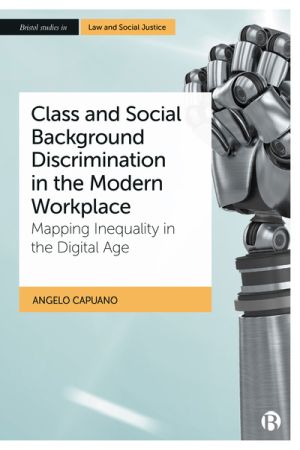We will be closed from 5pm Thursday 17th April for the Easter Bank Holidays, re-opening at 8.30am on Tuesday 22nd April. Any orders placed during this period will be processed when we re-open.

This book exposes how inequalities based on class and social background arise from employment practices in the digital age. It considers instances where social media is used in recruitment to infiltrate private lives and hide job advertisements based on locality; where algorithms assess socio-economic data to filter candidates; where human interviewers are replaced by artificial intelligence with design that disadvantages users of classed language; and where already vulnerable groups become victims of digitalisation and remote work.
The author examines whether these practices create risks of discrimination based on certain protected attributes, including ‘social origin’ in international labour law and laws in Australia and South Africa, ‘social condition’ and ‘family status’ in laws within Canada, and others. The book proposes essential law reform and improvements to workplace policy.